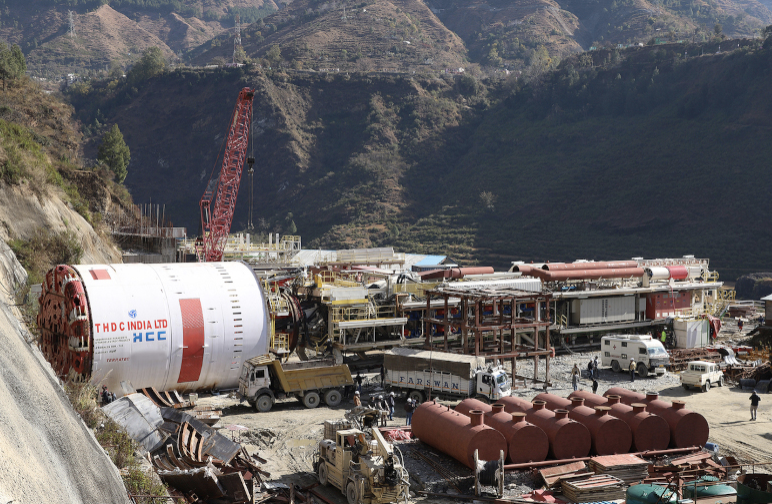
A significant step has been taken in the Vishnugad-Pipalkoti Hydropower Project in India as tunnel boring operations have kicked off. This hydroelectric project is located along the Alaknanda River, which is a key tributary of the Ganga River, in the Uttarakhand state, positioned about 500 kilometers northeast of Delhi.
Hindustan Construction Co Ltd, the main contractor for the project, is responsible for a range of construction activities including building dams, creating the head race and tail race tunnels, setting up diversion structures and spillways, constructing vertical shafts, and establishing a powerhouse with a capacity of 444MW
The central focus of the construction effort involves the use of a specialized Terratec hard rock double shield Tunnel Boring Machine (TBM) with a diameter of 9.86 meters. Terratec has also provided a tunnel conveyor system that ensures a continuous and efficient construction process.
In terms of geology, the project's route is primarily composed of Dolomitic limestone (33%) and slates (64%). Negotiating the remaining 3% of the terrain presents some geological challenges, including thrust zones with a shallow overburden of just 150m, five shear zones, and three fault zones.
The TBM itself is equipped with a cutterhead featuring 19-inch disc cutters and 12 spacious bucket openings. Powered by a robust 4200kW electric main drive, the TBM is well-equipped to tackle the expected tough rock conditions, providing a torque of over 22,000 kilonewton-meters. As the TBM progresses, it will leave behind a trail of reinforced concrete lining rings, each measuring 1,500mm in width and 350mm in thickness.
The TBM boasts advanced features including a high-speed regripping system, single-shield advancing mode, a high-pressure emergency thrust capability, and flood control doors. The essential components of the TBM were sourced from Australia and Japan, while the assembly took place in Terratec's facilities in China.